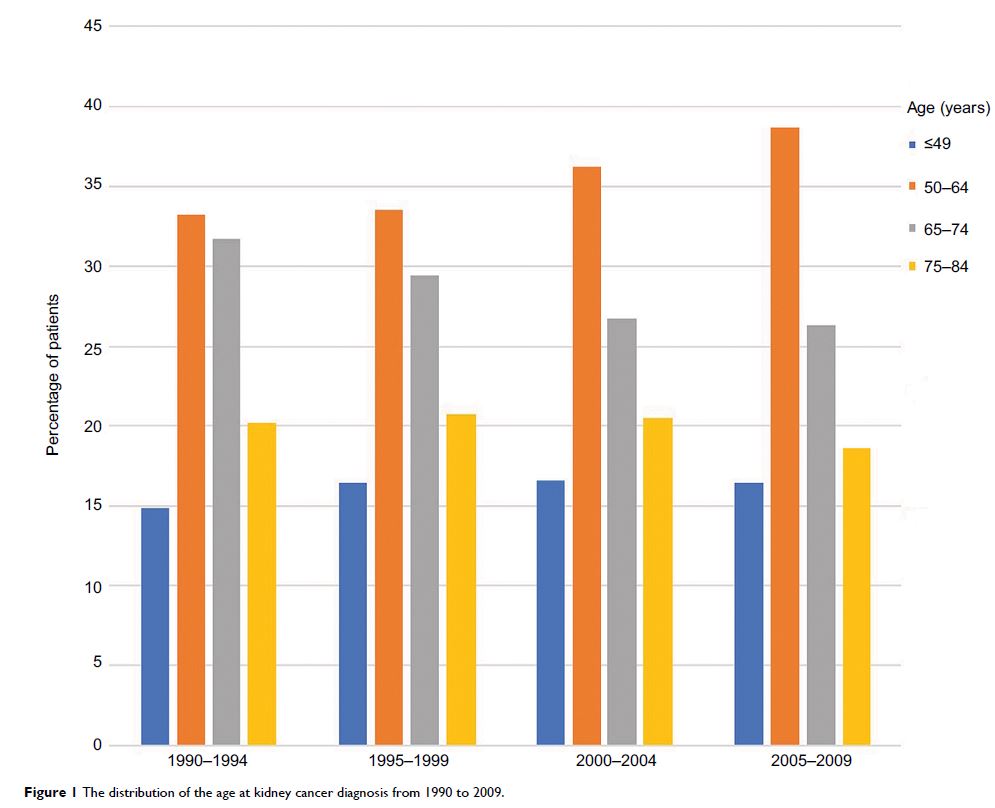108605
论文已发表
注册即可获取德孚的最新动态
IF 收录期刊
- 3.4 Breast Cancer (Dove Med Press)
- 3.2 Clin Epidemiol
- 2.6 Cancer Manag Res
- 2.9 Infect Drug Resist
- 3.7 Clin Interv Aging
- 5.1 Drug Des Dev Ther
- 3.1 Int J Chronic Obstr
- 6.6 Int J Nanomed
- 2.6 Int J Women's Health
- 2.9 Neuropsych Dis Treat
- 2.8 OncoTargets Ther
- 2.0 Patient Prefer Adher
- 2.2 Ther Clin Risk Manag
- 2.5 J Pain Res
- 3.0 Diabet Metab Synd Ob
- 3.2 Psychol Res Behav Ma
- 3.4 Nat Sci Sleep
- 1.8 Pharmgenomics Pers Med
- 2.0 Risk Manag Healthc Policy
- 4.1 J Inflamm Res
- 2.0 Int J Gen Med
- 3.4 J Hepatocell Carcinoma
- 3.0 J Asthma Allergy
- 2.2 Clin Cosmet Investig Dermatol
- 2.4 J Multidiscip Healthc

基于年龄的癌症特异性存活率改善的差距与肾癌的各种临床病理特征的关系
Authors Liu K, Wang P, Zhu X, Bei Y, Zheng Z, Yan S
Received 24 March 2018
Accepted for publication 11 June 2018
Published 27 July 2018 Volume 2018:10 Pages 2259—2268
DOI https://doi.org/10.2147/CMAR.S169192
Checked for plagiarism Yes
Review by Single-blind
Peer reviewers approved by Dr Amy Norman
Peer reviewer comments 2
Editor who approved publication: Professor Kenan Onel
Introduction: Whether or not age is a predictor of kidney cancer survival is
currently unknown but debated. It is also unknown whether improved kidney
cancer survival is associated with age with particular clinicopathologic
characteristics. The aim of this study was to evaluate kidney cancer survival
in four age-based subgroups of patients by analyzing the Surveillance,
Epidemiology, and End Results-registered database.
Methods: Age-based survival disparity by sex, race, marital status, year of
diagnosis, pathological grade, histological type, and stage was measured. The
impact of age and further parameters on disease specific mortality was
evaluated by multivariate Cox proportional hazards regression analyses.
Results: Results showed that 8-year cancer-specific survival was 79.6% in
those aged ≤49 years, 70.6% in those aged 50–64 years, 65.3% in those aged
65–74 years, and 56.0% in those aged 75–84 years. These differences were
significant as judged by a univariate log-rank test (P <0.001) and multivariate Cox
regression (P <0.001). Age-based survival
improvement was most obvious in patients diagnosed from 2005 to 2009 and with
the following clinicopathologic characteristics: female, white race, low
pathological grade, and localized stage. There was no obvious disparity of
age-based survival improvement with regard to marital status or histologic
type. No age-based survival improvement was observed in patients of the black
race, pathological grade IV, or distant stage (P =0.05, P=0.07, and P =0.07, respectively).
Conclusion: These data suggest that age is an independent prognostic factor
for survival in patients with kidney cancer and that age-based survival
improvement is associated with particular clinicopathologic characteristics.
Keywords: renal tumor, age groups, prognosis, epidemiology, SEER
